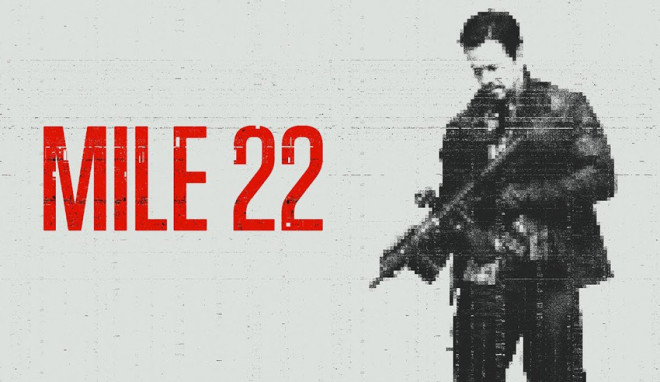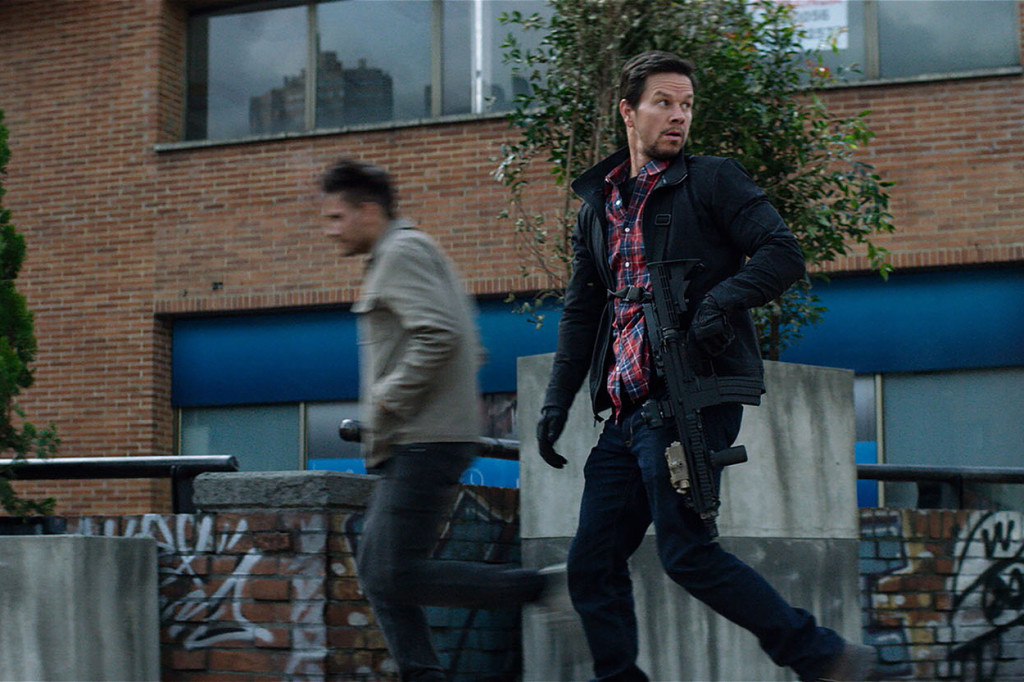Genre: Action
Premise: The CIA must transfer an Indonesian cop to a remote airfield 22 miles away while avoiding the most dangerous man in the country, whose livelihood depends on killing everyone in their transport.
About: One of the biggest bromances in Hollywood – Mark Wahlberg and Peter Berg – continues with Mile 22. This testosterone injection app was written by Graham Roland, who’s written on Lost, Prison Break, Fringe, and most recently created Amazon’s “Jack Ryan” series. Later on, newcomer Lea Carpenter would take on writing duties. But this is the original draft, before she got involved. The movie debuts a week from Friday and, in addition to Wahlberg, stars The Walking Dead’s Lauren Cohan, and Iko Uwais, who came to prominence in The Raid films.
Writer: Graham Roland
Details: 11/27/14 draft
I liked this script a lot.
And after finishing it, I wondered why I liked it so much more than the universally lauded Mission Impossible 6. They’re both testosterone-fueled realism-based action films with dudes and sometimes chicks shooting at each other. What’s the difference?
The difference is that Mission Impossible starts its brainstorming session by asking, “What cool action scenes can we create?” Once it has that figured out, they build a story around it.
Mile 22, meanwhile, was built around a concept. Trying to transport someone 22 miles to freedom, with everyone in the city trying to stop them. As a result, everything feels more organic. When an action scene in Mile 22 arrives, it arrives because it needs to arrive. It doesn’t arrive because the director really wanted that scene in the movie and had to move mountains to wedge it into the screenplay somehow.
And that’s all I’m asking for whenever I sit down to watch something – I want a good story. This is why, even though I’m not a big action guy, if you give me a good story with good characters, I’ll watch anything, even if it’s not in my wheelhouse.
This early version of Mile 22 focuses on Yuda, an Indonesian Police Lieutenant who unknowingly kills an important man during a drug raid after coming in on him ripping out the organs of a young woman. Yuda’s commander is furious, as it turns out he’s killed the nephew of the biggest crime boss in the city, Iblis Gurret.
The Indonesian police and Gurret’s gang come together to try and resolve this issue. And when Yuda realizes that they’re probably going to kill him, he flees. It doesn’t take long for Gurret’s guys to find him and kill his family. Yuda escapes once again, this time going to the only place he knows he’ll be safe, the U.S.’s CIA headquarters in the city.
Yuda offers the CIA a deal. He’ll give them information on some dead CIA agents if they’ll provide him with asylum. After they strike a deal, the CIA learns that Gurret, who’s some crazed black magic weirdo who cuts out the hearts of his victims, killed three of their agents. Now they have to hold up their end of the deal and fly Yuda back to the US. Unfortunately, the Indonesian Police control all the airports. So their only shot is driving Yuda to an abandoned airfield, 22 miles away, and having U.S. air support pick them up.
Leading the operation are Silva, a tough-as-nails can’t-shake-him agent, and Jett, who never wanted to be stationed in this country in the first place. As they gear up, they realize that their own network may have been compromised, and that because they now have information that could doom Gurret’s gang AND the police, that everyone in the city will be after them. Needless to say, it’s going to be one hell of a ride.
Man, this reads different from the trailer.
It looks like the first thing they changed was the black magic stuff. I found that a curious decision only because it was the most original stuff in the screenplay. But I can see guys like Wahlberg and Berg going in another direction. They’re fairly open about their love for realistic scenarios. Not to mention, we live in the most overly sensitive time in history. So if you make your Indonesian villain a black magic heart-eater, you might as well come up with the Twitter racism campaigns yourself.
They also changed the information that Yuda was carrying. The CIA killings were tied to the black magic, so after dropping the black magic plot, they had to change the “evidence” on the thumb drive as well. So now it’s information on “9 pounds of missing radioactive isotope.” That’s one of the drawbacks of eliminating unique plot points. Is the ancillary plot points become generic.
One of the funnier changes they made was reversing the importance of the two CIA agents. In this version, Jett, the female character, is the star. She’s the one with the complicated backstory and all the lines. Clearly, as soon as Mark Wahlberg came onto the project, he changed all that. You can see that he’s front and center with the decision-making in the trailer.
It also looks like they took out the slaughtering of Yuda’s family. This I can understand. If you just had your wife, kids, brother, nieces and nephews slaughtered in front of you, I don’t know if you’re gung-ho about going to the CIA and trying to escape the country. At that point, you’re essentially dead, right? Where are you getting your motivation? And it’s just a sad reality for the audience to endure. These movies are supposed to be fun. I’m not sure an audience is having fun after a family’s been turned into pulled pork.
But none of this matters because the heart of this concept is so strong. The idea of getting this dangerous person through the city with everyone who owns a gun trying to stop you is going to work regardless of how you move the pieces around. This is why everyone harps on the importance of concept. When you get the concept right, it does all the hard work for you.
Reading this, I can imagine how fun it would’ve been to write. When you have these setups, your goal as the writer is simple: THROW AS MUCH SHIT AT THE CHARACTERS AS POSSIBLE. So in their very first encounter with the gang, they get blown off the street. We’re a mile in and they’ve already lost their vehicle. Then they find out one of their own is broadcasting their location to the bad guys every few minutes. Then they learn that Gurrett just put a price on their head. Now EVERYONE in the city is after them. You keep making it worse and worse on your heroes and the joy comes in watching them try to emerge unscathed.
Oh, and I’d be remiss if I didn’t mention that NONE OF THIS WORKS unless you use your first act to make us fall in love with your characters. Roland did an amazing job setting up the characters of Yuda and Jett. I’d say each of them gets 5-8 pages of solid character development. Then, and only then, do we care when these characters are getting shot at later. When you don’t do this properly, your screenplay is empty action. And there’s nothing more boring than reading empty action.
[ ] What the hell did I just read?
[ ] wasn’t for me
[xx] worth the read
[ ] impressive
[ ] genius
What I learned: Your first act is where you’ll do the bulk of your character work. This is where you set up the character’s flaw, their history, their relationships, and whatever else you want to throw in there that invokes an emotional connection to the character. Do this in the second act, after the reader has already determined that the character is boring, and it’s probably too late. Case in point: Silva. He’s introduced in a boring way. He doesn’t talk much. When he does talk, it’s nothing special. He doesn’t have any connections to anyone else we care about. Diagnosis: BORING. Later on, Silva reveals that his wife died of cancer. But by that point, it was too late. We’d already determined this character was weak-sauce.




